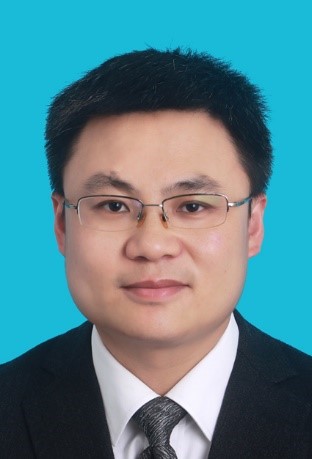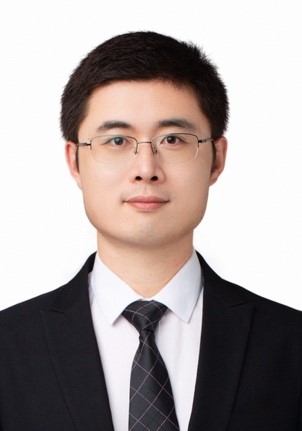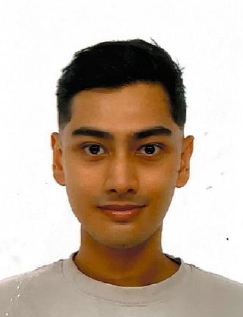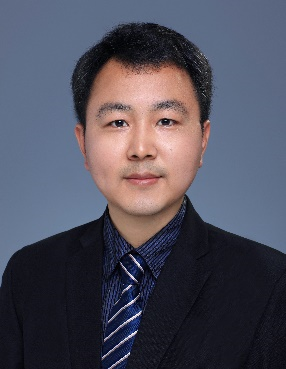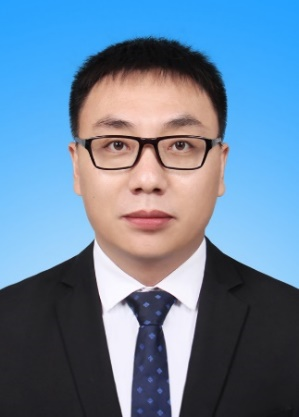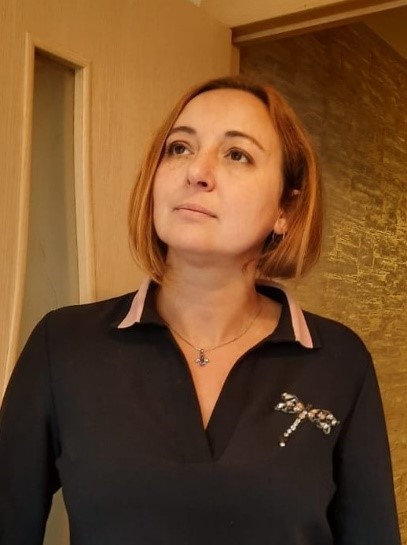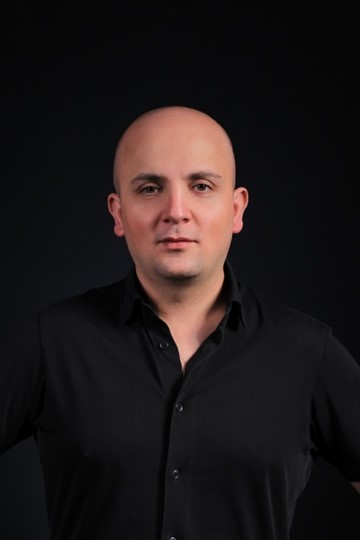
Invited Speakers
Session 1: Robotics and applications |
| Professor Jianjun Ni IEEE Senior Member, Hohai University, China Director, Institute of Electronics and Information Technology, Hohai University Jianjun Ni received his Ph.D. degree in Department of Information and Electrical Engineering from China University of Mining and Technology, Xuzhou, China, in 2005. He was a Visiting Professor with the Advanced Robotics & Intelligent Systems (ARIS) Laboratory at the University of Guelph in Canada from November 2009 to October 2010. He is currently a Professor of School of Artificial Intelligence and Automation at Hohai University, China. He has published over 100 papers in related international conferences and journals. He serves as an Associate Editor of Intelligence & Robotics, and Editorial Member of several other journals. His research interests include fuzzy systems, neural networks, robotics, machine intelligence, and multi-agent system. Title: Scene Understanding for Autonomous Robotics Abstract: Autonomous robots have developed rapidly recently, and are used for some specific scenarios such as urban search and rescue, home cleaning, and so on. The expansion of robot application range requires that the functions of robots are no longer limited to mechanized or programmed operation, narrow human-computer interaction, etc. It is expected that intelligent robots can realize autonomous working by perceiving the surrounding environment, and to realize the interaction between robot, human, and environment. In this report, several hot topics in this field and some related works of the group of the reporter will be introduced. In addition, the potential research directions in this field will be given out. |
| Assistant Professor Jiankun Wang IEEE Senior Member, Southern university of science and technology, China Jiankun Wang is currently an Assistant Professor in the Department of Electronic and Electrical Engineering, Southern University of Science and Technology (SUSTech). Before that, he received the B. Eng. degree in the School of Control Science and Engineering, Shandong University in 2015, and Ph.D. degree in the Department of Electronic Engineering, The Chinese University of Hong Kong (CUHK), supervised by Prof. Max Q.-H. Meng. From 2019.8 to 2020.8, he worked as a Postdoc with Prof. Max Q.-H. Meng in the Department of Electronic Engineering, CUHK. From 2020.9 to 2022.6, he worked as a Research Assistant Professor in the Department of Electronic and Electrical Engineering, SUSTech.His research focuses on Robotics, Motion and Path Planning, and Human Robot Interaction. Recently, he is working on human-aware motion planning and data-driven method for motion planning. Title: AI-driven Robot Task and Motion Planning Abstract: Robot task and motion planning (TAMP) is a hierarchical decision-making process that includes high-level task planning that determines the sequence of robot actions and low-level motion planning that calculates how to perform each action. In this talk, we will introduce the theory and applications of TAMP from the following aspects: AI-driven robot motion planning, robot manipulation of complex objects, and visual-language based human-robot interaction. Finally, we will present a practical application of TAMP with the aim of designing a robotic system for autonomous luggage trolley collection at airports. |
| Muhammad Shalihan Bin Othman Singapore University of Technology and Design, Singapore Muhammad Shalihan Bin Othman received the B.Eng. degree in Mechatronics from University of Glasgow, Scotland, in 2018. He is currently a PhD candidate in Engineering Product Development at Singapore University of Technology and Design. His research focuses on robotics, particularly in Simultaneous Localization and Mapping and applying machine learning technologies to improve localization results. Title: NLOS Ranging Mitigation with Neural Network Model for UWB Localization Abstract: Localization of robots is vital for navigation and path planning, such as in cases where a map of the environment is needed. Ultra-Wideband (UWB) for indoor location systems has been gaining popularity over the years with the introduction of low-cost UWB modules providing centimeter-level accuracy. However, in the presence of obstacles in the environment, Non-Line-Of-Sight (NLOS) measurements from the UWB will produce inaccurate results. As low-cost UWB devices do not provide channel information, we propose an approach to decide if a measurement is within Line-Of-Sight (LOS) or not by using some signal strength information provided by low-cost UWB modules through a Neural Network (NN) model. The result of this model is the probability of a ranging measurement being LOS which was used for localization through the Weighted-Least-Square (WLS) method. Our approach improves localization accuracy by 16.93% on the lobby testing data and 27.97% on the corridor testing data using the NN model trained with all extracted inputs from the office training data. |
| Khattiya Pongsirijinda Singapore University of Technology and Design, Singapore Khattiya Pongsirijinda received the B.Sc. degree in Mathematics from Silpakorn University, Thailand, in 2019 and the M.Sc. degree in Data Science from the Skolkovo Institute of Science and Technology, Russia, in 2021. He was also a research student at the University of Nebraska–Lincoln, USA, in 2018. He is currently pursuing his Ph.D. degree at the Singapore University of Technology and Design, Singapore, under the supervision of Prof. Chau Yuen. His current research interests include robotics, multi-robot systems, and mathematical modeling. Title: Distributed Multi-Robot Potential-Field-Based Exploration in Unknown Environments Abstract: Nowadays, multi-robot collaboration has become a prominent part of unknown environment exploration because of its excellent performance in several complex scenarios. However, there is still room for improvement in exploration duration and inter-robot coordination for existing exploration methods. Therefore, this talk will introduce our novel exploration method, Distributed Multi-Robot Potential-Field-Based Exploration (DMPF-Explore). In particular, its main compositions, which are the Distributed Submap-Based Multi-Robot Collaborative Mapping Method (DSMC-Map) and the Potential-Field-Based Exploration Strategy Augmented with Modified Wave-Front Distance and Colored Noises (MWF-CN), will be briefly explained. In addition, there will be some details about how the new techniques in our exploration method can enhance robot capability to outperform the other approaches in terms of exploration duration and inter-robot coordination. |
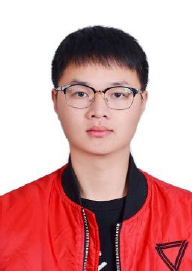 | Cao Zhiqiang Singapore University of Technology and Design, Singapore Cao Zhiqiang received his Bachelor’s degree in Automatic from Southwest University of Science and Technology, China, in 2019, and his Master’s degree in Control Engineering from Southwest University of Science and Technology in 2022. He is pursuing his Ph.D. in Engineering Product Development at Singapore University of Technology and Design, under the supervision of Associate Prof. Chua Yuen. Interest in Multi-robot systems, Collaborative localization, distributed SLAM systems, and UWB localization. His research focuses on Multi-robot system, collaborative multi-robot system, pose estimation. Title: Relative Localization for Multi-robot System Abstract: Although GPS can provide meter-level positioning accuracy in spacious outdoor environments, which is not suitable for indoor positioning due to the block of satellite signals from buildings. Relative localization between robots is crucial for achieving further applications of multi-robot systems, such as exploration, path planning, and formation. The traditional UWB-based approach is able to provide a good estimation of the distance between UWB nodes, but estimating relative pose remains challenging. This talk will present an approach to estimate the relative pose between a group of robots by multiple UWB nodes on each robot. We determine the relative pose by minimizing the residual error of the ranging measurement from all UWB nodes between two robots. To improve localization accuracy, we bring in odometry constraints through a sliding window-based optimization. Finally, the optimized relative pose and the odometry are fled into a particle filtering for pose tracking among a group of robots. |
Session 2: Intelligent Control systems and optimization |
| Professor Qiang Liu IEEE Senior Member, State Key Laboratory of Synthetical Automation for Process Industries, Northeastern University, China He is the postdoctor fellow in Viterbi School of Eningeering in the University of Southern California from Sep. 2014 to Oct. 2016. He is a senior member of IEEE and the recipient of the Outstanding Young Scholar of Liaoning Revitalization Talents Program, China. He is the Committee Member and Secretariat-General of the Technical Committee on Big Data of the Chinese Association of Automation. He is also the Committee Member of the IFAC Technical Committee on Fault Detection, Supervision and Safety for Technical Processes. His research interests include big data analytics, machine learning, statistical process monitoring and fault diagnosis of complex industrial processes. He has published more than 70 peer-reviewed papers. He won a number of academic awards, including the Best Paper Award of 2018 IEEE Conference on Intelligent Rail Transportation. He is a principal investigator of two Key projects supported by Natural Science Foundation of China and National Key Research and Development Program of China. He is the Editor/Guest Editor of a few International Journals, including the Associate Editor of Intelligence & Robotics, Control Engineering of China, and head Guest Editor of a special issue on "Advanced Intelligent Manufacturing System: Theory, Algorithms, and Industrial Applications" in the IEEE Transactions on Industrial Informatics. Title: Working Condition Identification and Quality Prediction in the Era of Big Data and Industrial Internet Abstract: Intelligent manufacturing of modern industrial processes is the solution towards safe and efficient, green operation. The working condition identification and quality prediction are two major concerns of intelligent manufacturing in the era of big data and industrial internet. This talk will first review the existing work on working condition identification and quality prediction. In view of the spatiotemporal characteristics of the dynamic data and image sequences of industrial processes under abnormal conditions and non-optimal conditions, some recent work on operation condition identification and quality prediction from the research group is presented. The experimental results on real industrial processes demonstrate the effectiveness of the proposed method. Finally, the future work is prospected. |
| Professor Mingzhe Hou Center for Control Theory and Guidance Technology,Harbin Institute of Technology, China Prof. Mingzhe Hou received his Ph. D. degree in control science and engineering from Harbin Institute of Technology in 2011. He became a Lecturer, an Associate Professor and a Professor of Harbin Institute of Technology in 2012, 2016 and 2022, respectively. He is a member of Chinese Association of Automation, a young editor of Aerospace Technology, a guest editor of Journal of Systems Science and Complexity and a reviewer for American Mathematical Review. His research interests include nonlinear control and aircraft/spacecraft control. In these fields, he has led or participated as a core member in more than 10 national level scientific research projects, published over 50 journal papers, a monograph and a translation, and been authorized with 10 national invention patents. Title: Nonlinear Adaptive Control with High-accuracy Estimation of Uncertain Parameters Abstract: Adaptive control is an effective tool to deal with uncertainties in control systems, therefore, it has been a research hotspot in the nonlinear control field for many years. The traditional constructive nonlinear adaptive control based on the Lyapunov theory mainly focuses on the convergence of tracking errors. As for the unknown parameter estimation errors, generally, it can only be guaranteed that they are bounded rather than they converge to zero. Actually, the convergence of unknown parameter estimation errors is of great significance for improving the robust stability of the closed-loop system. This representation will show the preliminary explorations of the reporter's research group in nonlinear adaptive control with high-accuracy estimation of uncertain parameters in recent years, including adaptive dynamic surface control of strict feedback systems and high-order strict feedback systems, iterative learning adaptive sliding mode control of fully actuated systems and their applications. |
| Assistant Professor Liguo Tan Laboratory for Space Environment and Physical Sciences,Harbin Institute of Technology, China
Title: Key Technology Research on Hybrid Unmanned Aerial Underwater Vehicles Abstract: Hybrid unmanned aerial underwater vehicles(HUAUV)have become an emerging research hotspot with great application potential and value. However, the technology in this field is not yet mature, and most research in this field at home and abroad is still in the stage of prototype development and testing, primarily aimed at verifying the feasibility of various system development approaches. This thesis delves into the in-depth analysis of both domestic and international research on cross-medium vehicles and focuses on the key technological areas of HUAUVs at the current stage. |
Session 3: Artificial Intelligence technology and applications |
| Professor Julia A. Shichkina Saint-Petersburg State Electrotechnical University “LETI”, Russia Yulia Shichkina, Doctor of Technical Sciences, Head of the Department "Artificial Intelligence Technologies in Physiology and Medicine" of the International Innovation Institute of Artificial Intelligence, Cybersecurity and Communications named after A.S. Popov, St. Petersburg State Electrotechnical University "LETI". She is a specialist in the field of artificial intelligence, databases, and distributed computing, which is confirmed by publications and research papers of post-graduate students defended under her supervision. One of the authors of the concept of co-evolutionary hybrid intelligence and cognitive architecture (Krinkin, K., Shichkina, Y. and Ignatyev, A. (2022), "Co-evolutionary hybrid intelligence is a key concept for the world intellectualization", Kybernetes, Vol. ahead-of-print No. https://doi.org/10.1108/K-03-2022-0472; K. Krinkin, Y. Shichkina and A. Ignatyev, "Co-evolutionary hybrid intelligence," 2021 5th Scientific School Dynamics of Complex Networks and their Applications (DCNA), 2021, pp. 112-115, doi: 10.1109/DCNA53427.2021.9587002). She has experience in leading international projects, including in medicine ("Safety applications enabled by Internet-of-Things infrastructure and big data analytics" under international grant #22854449 dated 07/15/2015. Timeline: 01.01.2015-31.12.2016 (USA), "Creation of information-technology support for Parkinson's disease research taking into account real-time collection and processing of large volume data" (RFBR. Jointly with CITMA Cuba, 2018-2021)), R&D management experience, currently responsible for the project under the program of creation and development of the world-class scientific center «Pavlov center «Integrative physiology for medicine, high-tech healthcare, and stress-resilience technologies» (Agreement № 075-15-2022-291 dated 15.04.2022). Title: Principles of Building Personalized Intelligent Human Assistants Based on the Concept of Co-evolutionary Hybrid Intelligence Abstract: The load on the human cognitive sphere is growing simultaneously with the high rates of scientific and technological progress. On the one hand, modern technologies allow to solve much more global tasks. On the other hand, these technologies are becoming more and more complex. It requires from the user greater concentration of attention, increased speed of reaction, ability to adopt a larger volume of information, quickly learning new technologies, etc. Human beings find it increasingly difficult to cope with such a psychophysiological load. Overloading often leads to psychological disorders such as stress, cognitive deficits, depression and others. These disorders lead to heart disease and other physiological illnesses. This report focuses on the problem of building intelligent personalized human assistants. The report will discuss some current theories on AI personalization, the relevance of building such assistants, basic principles and cognitive architecture for implementing personalized assistants. |
| Researcher Oleg V. Kravchenko Federal Research Center "Computer Science and Control" of the Russian Academy of Sciences, Russia · Since 2019, he has been working as a researcher at the Federal Research Center “Computer Science and Control” of the Russian Academy of Sciences. · A researcher at the Kotel’nikov Institute of Radio Engineering and Electronics of the Russian Academy of Sciences. · A senior lecturer at the Department of Advanced Mathematics of Bauman Moscow State Technical University. Kravchenko Oleg is mainly engaged in computational methods for fluid dynamics, modeling of plasma structures, data processing via atomic functions and R-functions (V.L. Rvachev functions) theory. He has been published more than 60 academic papers indexed in Scopus and more than 350 times have been cited by Google. As the reviewer of International Journal of Computational Methods and other international journals, he has been invited to give reports at various international conferences. Title: Modelling of Spin Wave Amplification in a Magnetic Strip Abstract: Modern research in magnonics is since the magnetic current is a fast means of transmitting the information. Therefore, creating new generations of microelectronic devices for storing and transmitting data and energy has become possible. Hence, an important task is to study spin waves in magnetic materials, for example, in antiferromagnets, which allows us to propose concepts and prototypes of terahertz devices. At the same time, the spin wave propagating in the magnetic material attenuates, so there is a need for spin current amplifiers. This paper considers the issues of modeling the spin wave amplification in a strip of ferromagnetic yttrium-iron garnet (YIG) using the transfer equation. The analysis of linear and nonlinear cases and simulation results are presented. Calculations demonstrate the amplification of the spin wave amplitude during the entire propagation interval in the linear case and saturation to a constant value in the nonlinear case. In this case, the saturation level, that is, the amplitude's constant value, depends on the nonlinearity coefficient's absolute value, where lower amplitude values correspond to higher nonlinearity parameters. |
| Director Pablo Iturralde Moscow Polytechnic University, Russia Pablo Iturralde is director of Moscow Poly Advanced Engineering School for Electric Vehicles. For more than 16 years, Pablo has been conducting scientific research and creating electric vehicles. Pablo has more than 35 completed projects in the field of transport and engineering. Now Pablo is leading projects to create electric motorcycles and unmanned vehicles. In addition, Pablo has created more than 5 Centers within the university aimed at the development of science in the transport direction.
Moscow Poly Advanced Engineering School for Electric Vehicles has more than 30 industrial partners, and we are implementing projects with them. Employees and students of the university work on projects. Pablo acts as the head of these projects, for example, now, together with AVTOTOR Holding, scientific work is being carried out on the development and manufacture of a modular universal platform for testing various types of electric motors and batteries. Title: AI Application in Automotive Industry Abstract: AI plays a crucial role in the development of autonomous vehicles. AI algorithms are used for perception, object detection, decision-making, and control, allowing vehicles to navigate and operate without human intervention. Pablo will answer the questions: “How AI is used in the automotive industry?” and “What does the future in AI hold for us?” |
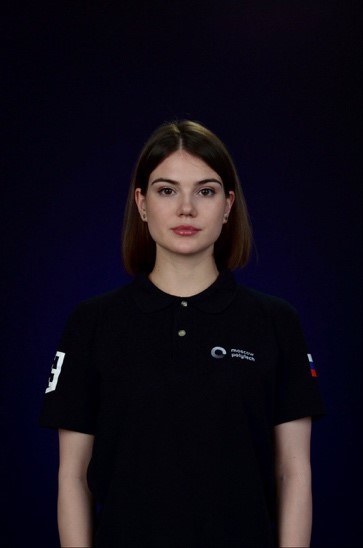 | Julia V. Faustova Moscow Polytechnic University, Russia The Moscow Polytechnic University has a highly developed project approach in the training of engineering personnel. Students of various courses and specialties participate in the creation of projects.
Julia has been conducting research in engineering education for more than 7 years. At the moment, the research has been applied at Moscow Poly Advanced Engineering School for Electric Vehicles. It has built a successful system of introducing students into projects with industrial partners. For example, now students of the master's program "Racing Engineering" are already developing a hybrid power plant for a racing prototype together with a partner. And junior students create electric motorcycles and set world speed records. The basic principle is fast and high-quality training for the industry. Such graduates do not need to be retrained and adapted to work in the company. Title: Education in the Field of AI Technology Development through University Projects Abstract: Nowadays, the field of AI is developing at a really high rate. And now universities have to implement the main task — to prepare a highly qualified specialist! This specialist must be in demand in the industry. Moscow Poly has many years of experience in preparing students through projects. Julia will tell about the main principles and fundamentals of education at the university. |
